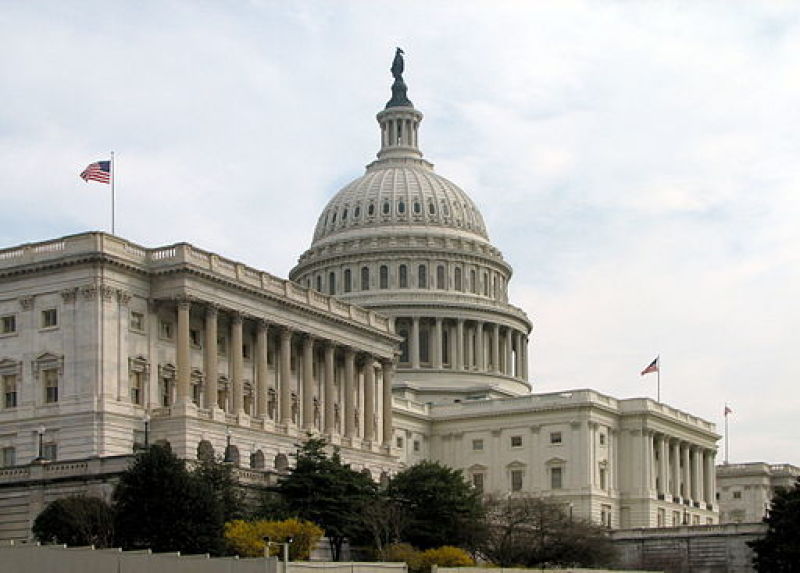

The U.S. Senate passed the Keystone XL bill, which will most likely be vetoed by President Obama.
On Thursday, the Senate was busy discussing, debating, and voting on bills. The Republican dominated Senate voted on the Keystone XL oil pipeline, which passed 62 to 36. The Keystone XL pipeline has been a hotly debated issue for the past five years.
Republican proponents of the bill state that the construction of the Keystone pipeline, which will span from Canada to the Gulf of Mexico, will create numerous jobs and be a mechanism for economic growth. Opponents, on the other hand, claim that the economic impact will be minimal, but the environmental impact will be dramatic.
Though it passed, the Keystone bill did not receive enough votes in the Senate to bypass the President's desk. After the vote was decided, the White House stated that the President would veto the bill once it reaches his desk next week. Opponents of the Keystone bill are also confident that the President will veto the bill.
The pipeline would transfer crude oil from Canada's oil sands to the States where it would be refined. In the past, the President said he would wait until he had further information and context before making a final decision on the construction of the pipeline. Last year, the State Department released a report that concluded the pipeline would not significantly affect the climate. Obama stated he would wait until other federal agencies, such as the Environmental Protection Agency, would publish their findings. The reports are due on Monday.
Also on Thursday, the Senate Banking Committee voted in favor of advancing a bill to impose harsher economic sanctions on Iran over its nuclear development. Though the bill was advanced 18 to 4, members of the panel agreed to postpone a vote on the bill until after negotiations were discussed with Iran.
Proponents of the bill fear that development of nuclear facilities will allow Iran to develop nuclear weapons. President Obama, however, stated that imposing sanctions would harm chances of negotiating with Iran over their nuclear policy.
"If negotiations fail, Congress and the president will join hands in applying greater pressure. And we will be in a far better position to ask the rest of the world to join us," said Democrat Sherrod Brown, an opponent of the bill.


















